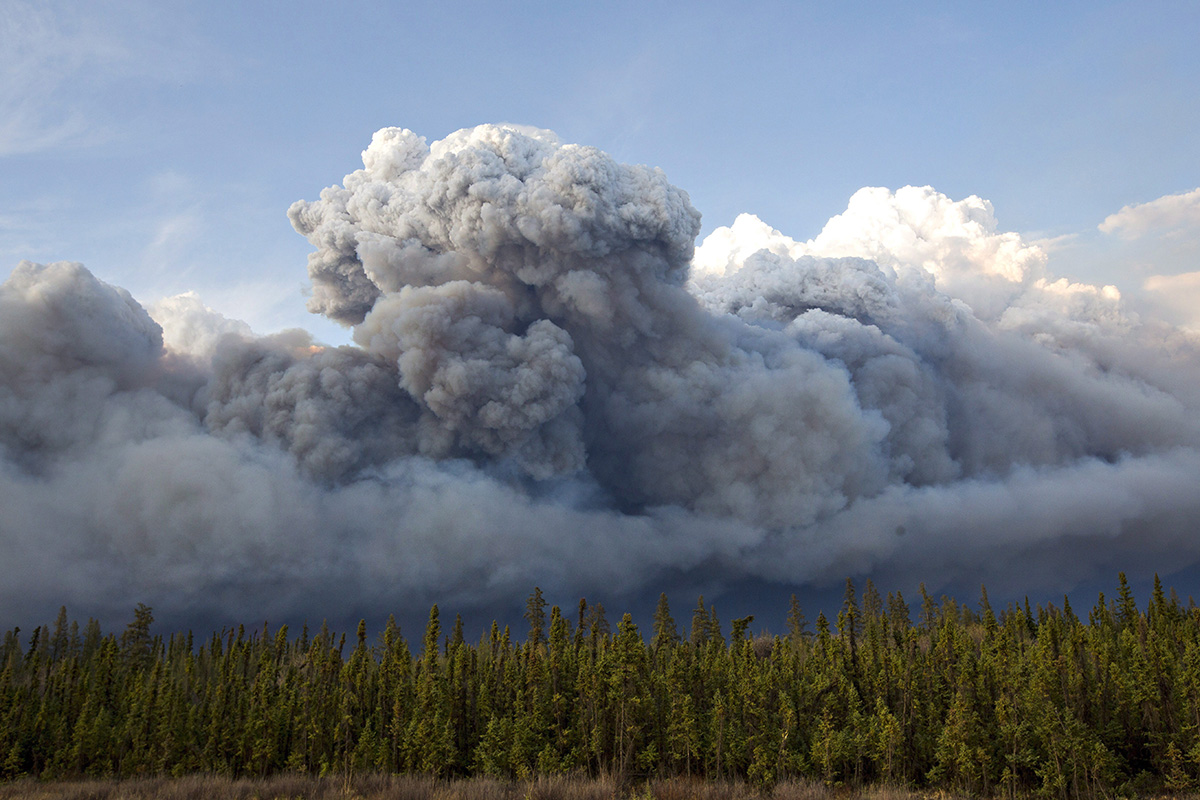REGINA – Emergency officials say the predicted movement of large wildfires in northern Alberta toward northwestern Saskatchewan has not happened. Saskatchewan emergency management commissioner Duane McKay says the fires, including a blaze that raced through Fort McMurray, haven’t advanced much and that’s a relief.

“It’s cautious relief,” McKay said Tuesday in a conference call.
“When we’re going into a season that started significantly earlier than normal, and the extreme forest and grass fires that we’ve seen over the last few days, I think we’re remaining vigilant.”
“Certainly, we’re very happy that we’ve seen this shift in the weather, and the patterns and fire behaviour in northern Alberta have not been as predicted, so there is a sense of relief, but we’re just at the beginning of our season.”
FULL COVERAGE: Fort McMurray Wildfire
Alberta officials said Tuesday that two wildfires in the Fort McMurray area had joined and covered about 2,300 square kilometres.
The flames were still more than 15 kilometres from the Saskatchewan boundary and more than 50 kilometres from any Saskatchewan community. The closest would be places such as La Loche or Buffalo Narrows.

Get daily National news
The communities have been under special air-quality advisories from Environment Canada because winds have blown in smoke from Alberta. The latest advisory Tuesday morning said the smoke was expected to push south out of the La Loche and Buffalo Narrows regions as the wind direction shifted.
McKay said there was no immediate threat.
“Notwithstanding that, we continue to work very closely with communities. All the communities in those particular areas are actively engaged in their planning for whatever this season might bring, but obviously with a lot less anxiety.”
Officials and residents in Saskatchewan have been closely watching the fire situation.
There were 720 fires that forced about 13,000 people from their homes last summer and burned 17,000 square kilometres of forest.
The Saskatchewan government recalled firefighting crews two weeks earlier this year and hired eight new crews in preparation for an early start to the wildfire season. The winter saw below average snowfall and above normal temperatures in much of Western Canada.
READ MORE: Dangerously dry conditions, what rainfall amounts are required
However, much needed rain soaked southern Saskatchewan on Tuesday and lowered the fire risk.
“It will wet down the fine fuels … the grasses, the small shrubs. It will also allow the trees and grasses to actually flush, turn green. When they do that, they become less volatile, less flammable,” said Steve Roberts, the province’s executive director of wildfire management.
“When greenup occurs, forests become a little bit more resistant to fire and quick fire starts, so that’s what the rain’s going to do.”
Roberts said only a part of northwestern Saskatchewan in the forest remains an extreme hazard.






Comments